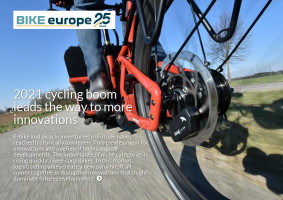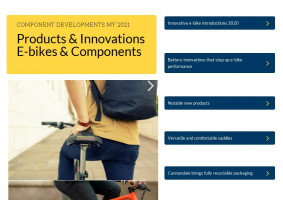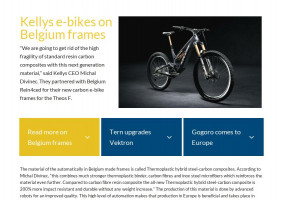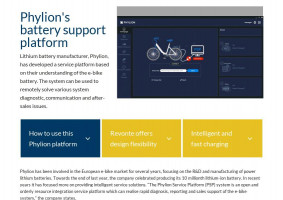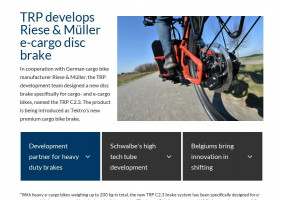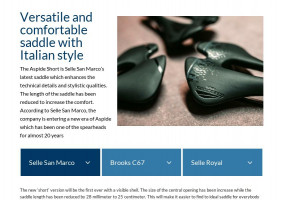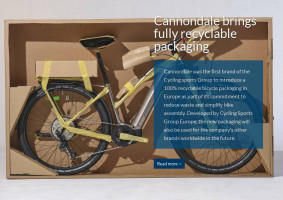TRP develops Riese & Müller e-cargo disc brake
In cooperation with German cargo bike manufacturer Riese & Müller, the TRP development team designed a new disc brake specifically for cargo- and e-cargo bikes, named the TRP C2.3. The product is being introduced as Tektro’s new premium cargo bike brake.
-2_w878_h630_1.jpg)
Lorem ipsum dolor sit amet
“With heavy e-cargo bikes weighing up to 200 kg in total, the new TRP C2.3 brake system has been specifically designed for e-cargo needs,” the company said on the launch of the product. “The letter ‘C’ indicates cargo and ‘2.3’ the use of a stronger 2.3 mm rotors compared to conventional 1.8 mm rotor.”
TRP, the high-end brand from Tektro (Tektro Racing Products), is known for developing performance braking systems for downhill mountain bike racing. TRP has used this know-how to adapt TRP E-Bike Solutions specifically for e-cargo bikes.
TRP C2.3, the first brake system specially designed for cargo bikes, was designed in cooperation with high-end bicycle manufacturer Riese & Müller as a development partner. In addition, to the TRP C2.3 brake system on the new R&M Load 60, the cargo bike also features TRP’s Clean Cockpit brake lever for a no-cable modern cockpit design.
Core-competencies of the TRP C2.3 include 2.3 mm thick rotors for increased lateral rotor stiffness and heat stability, which provide better lasting braking performance. The introduction of a new performance mineral oil which increases the boiling point to 230°C for higher system heat capacity and the organic e-bike brake pads which improve heat resistance and reduce noise.
TRP C2.3 will be implemented in Riese & Müller’s Load 60 and Load 75 standard and S-Pedelec models.
Schwalbe switches to thermoplastics
Schwalbe’s new tube made of a thermoplastic polyurethane called Aerothan has achieved top values for elasticity, weight and puncture protection, all without the use of rubber. The company claims the Aerothan tubes are much more robust and durable than butyl, latex and other synthetic tubes and are completely recyclable.
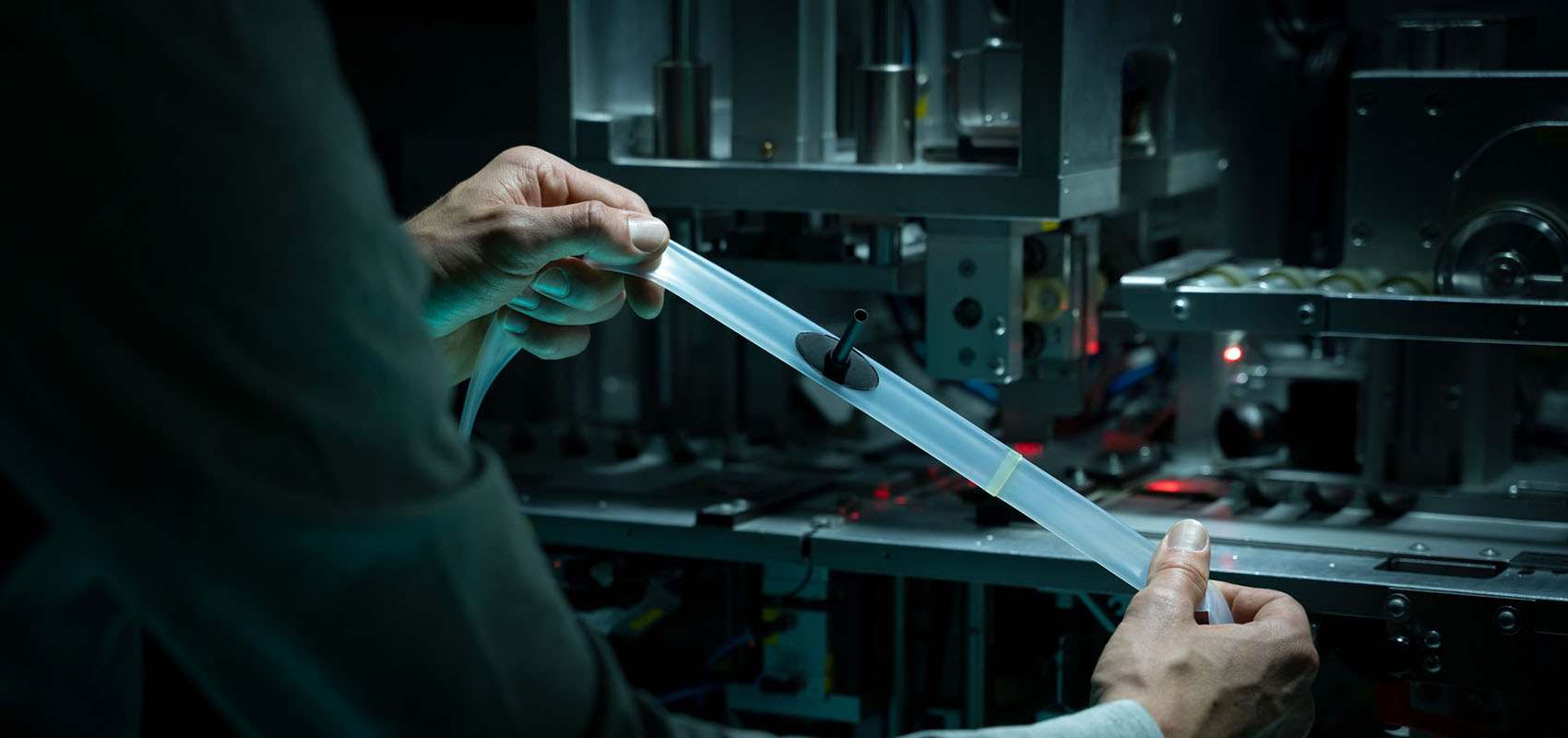
“For five years, we have tested the material in cooperation with BASF and improved it to perfection, exploring a completely new area of technology. This was the only way to surpass apparent obstacles of wanting to combine minimal weight and greatest puncture protection,” says Felix Schäfermeier, Schwalbe Product Manager about the transparent tube which starts at a mere 41 grams. “The result has exceeded our expectations. The material has incredible physical characteristics: a high level of resilience, unique ultimate tensile strength, superior damping properties, extreme heat resistance and greatest wear-resistance. Of course, it is also recyclable.”
Schwalbe carried out comparative tests to show how these characteristics act together in the Aerothan tube and how they compare to other tubes. The plunger test which simulates a small object creating a puncture showed that a force of 47 newtons is needed to puncture an Aerothan tube – more than double compared to other materials. The tube also performed well in terms of heat resistance having been tested at temperatures of more than 150°C at 78 km/h using a specially developed procedure. Test results for its rolling resistance showed that it keeps up well with latex, which is traditionally the fastest tube material and with tubeless systems.
The Aerothan tubes are lightweight; 41 grams for road bike tubes, 61 grams for all-round purposes and 81 grams for mountain biking. “Despite its high surface tension, resilience is excellent and offers a smooth, dynamic and precise ride which I have never experienced before,” concludes Felix Schäfermeier, who is also a former pro rider.
Belgium start-up brings innovative shifting system
The Belgium start-up Classified Cycling presented an all new smart shifting technology which will make conventional front derailleurs a thing of the past. The company is strongly embedded in the Belgium cycling culture with former road racer Tom Boonen as ambassador as a new shareholder and Ridley as launching partner.
Bicycle manufacturer Ridley is pioneering the Classified system on its latest gravel bike, the Ridley Kanzo Fast. The virtual derailleur from Classified is incorporated in the rear wheel hub. This system provides 22 gears with just a single front chain ring and eleven rear sprockets. The shifting takes place in a fraction of a second, even under peak load.
Tom Boonen took up a role as adviser and ambassador as a new shareholder for Classified Cycling. “This technology is extremely innovative and we are expecting a definitive breakthrough in 2021, perhaps even in the professional peloton. Furthermore, Classified is based in Flanders and I’m happy to help promote this new product which is manufactured in the heart of the world of cycling.”
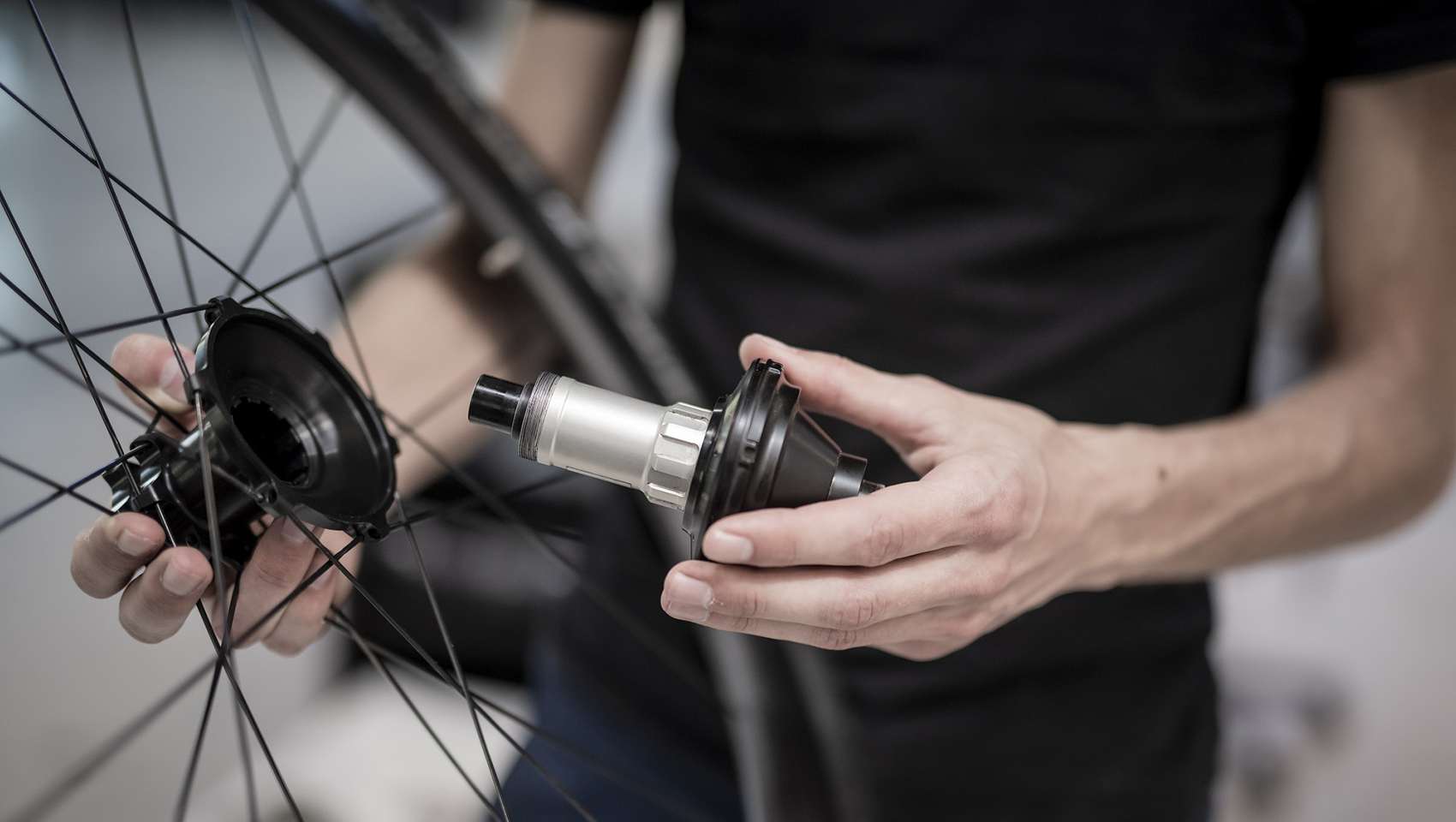
For Classified CEO Mathias Plouvier, Tom Boonen’s participation and the collaboration with Ridley are significant steps and proof that there’s a big market for his company’s invention. “Barely a month after our initial presentation, Ridley was the first to join forces with Classified.”
Ridley Bikes and Eddy Merckx Cycles owner Jochim Aerts is convinced about the new shifting technology. “Our new gravel bike the Kanzo Fast is the first to be equipped with this Classified shifting system, which has helped our R&D department make this bike even more aerodynamic. Getting rid of the front derailleur and a perfect seat tube finishing takes this bike to an even higher level, without losing any of the benefits of shifting between an outer and inner chain ring.”
Classified Cycling developed and manufactures an ingenious, electro-mechanical system in the rear wheel hub. The 2-speed ‘gearbox’ in the smart wheel hub consists of 100 patented components and works wirelessly. The company is based at the Open Manufacturing Campus in Turnhout, Belgium. At the heart of this revolutionary technology is a team of Belgian and Dutch engineers and experts in transmission systems. The management team, investment company LRM and ex-world champion Tom Boonen are all shareholders. Over 90% of the components are manufactured by suppliers from Belgium and the Netherlands.
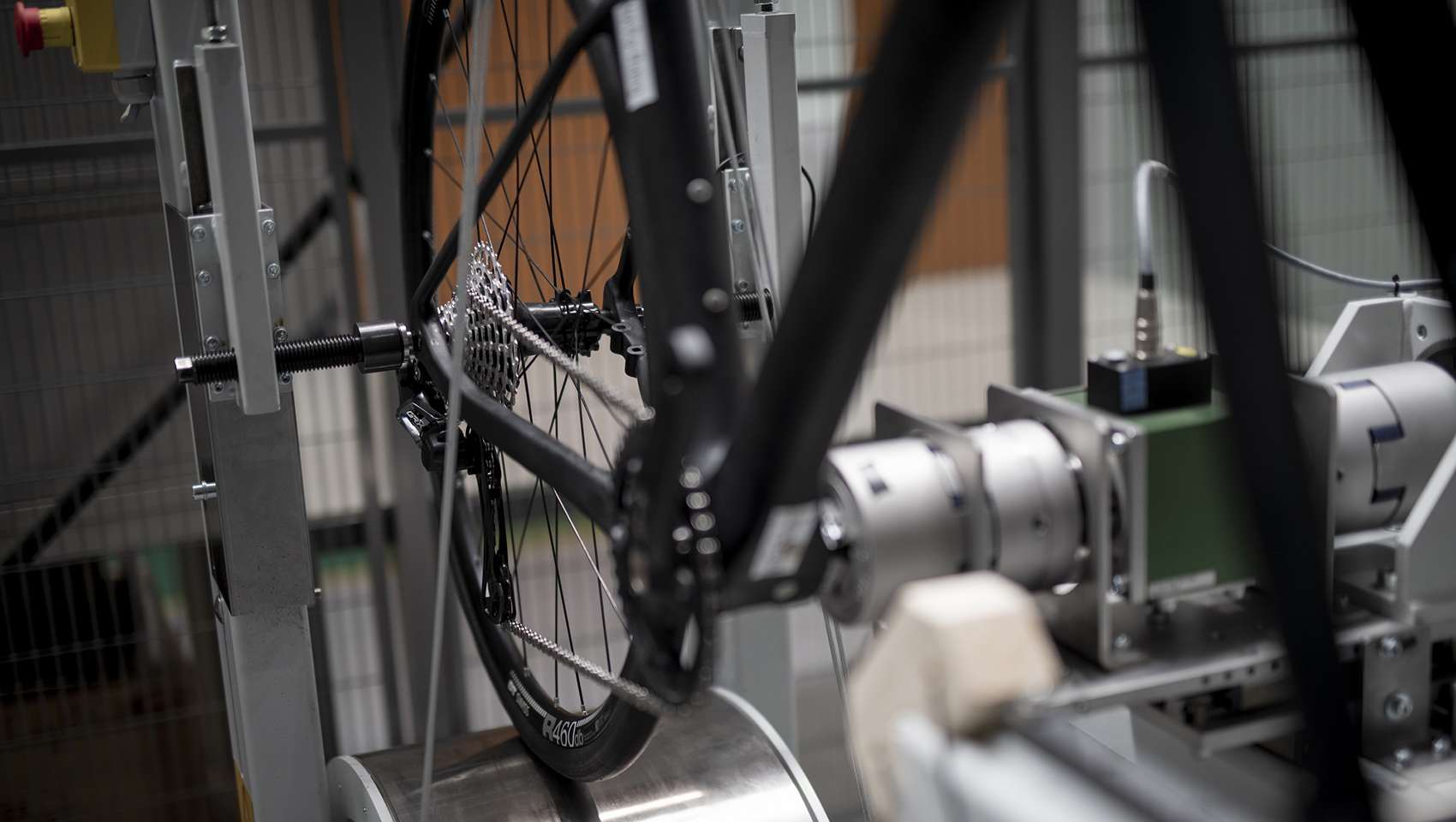
_w878_h570_1.png)
